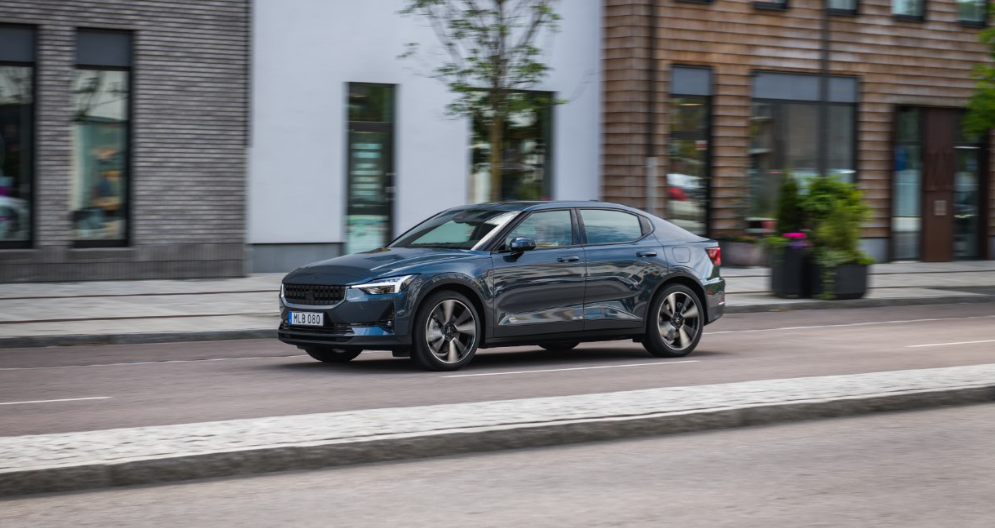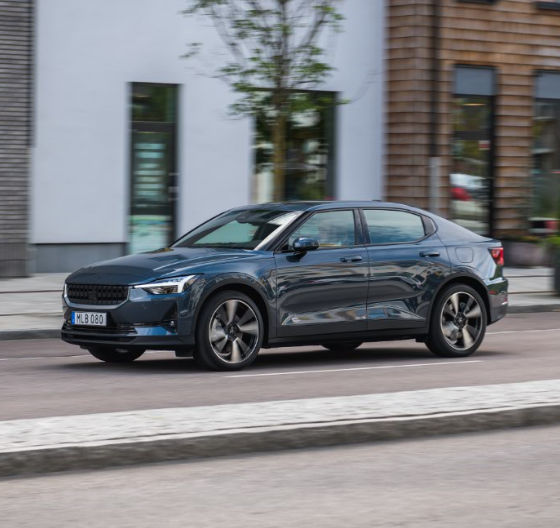Noted carmaker Aston Martin has found itself in a climate lobbying controversy, following the spread of an anti-EV study which peddled the idea that electric cars will have to travel as far as 50,000 miles before matching the carbon footprint of a comparable fossil fuel-powered vehicle. Needless to say, the controversy, which is now being dubbed in EV circles as #Astongate, is crumbling down, and it seems to be dragging Aston Martin’s name with it.
The report, titled “Decarbonising Road Transport: There Is No Silver Bullet,” made the rounds in several key media outlets last week, with agencies such as The Times and the The Daily Telegraph reporting on its alleged findings. The findings of the study promptly drew raised eyebrows from EV authorities online, most especially Auke Hoekstra, Senior Advisor on Electric Mobility at the Eindhoven Technical University, who is known for debunking anti-electric car narratives. It didn’t take long before the study was thoroughly debunked.
But the story only got stranger from there.
Electric vehicle experts and researchers opted to trace the source of the study, and what they found was quite interesting. As it turned out, the study was commissioned by companies including Aston Martin, Bosch, Honda, and McLaren. The study was presented as the work of a firm called Clarendon Communications, and it was commissioned shortly after UK Prime Minister Boris Johnson called for a ban on the sale of new fossil fuel-powered vehicles from 2030.
Interestingly enough, the communications firm behind the report, Clarendon Communications, was registered under the name of Rebecca Stephen, a part-time NHS nurse and the spouse of Aston Martin’s government affairs director, James Stephen. The PR firm was set up only this February, and it is registered to the address of a property jointly owned by the couple.
In an email to The Guardian, Rebecca Stephen stated that the report from Clarendon was “compiled” by the same companies that commissioned the study itself. According to Stephen, Clarendon was contacted by Bosch “to provide public affairs and stakeholder support” so its logo and contact details appear on the back of the report “for this purpose.” Bosch, for its part, noted via a spokeswoman that it fully supports the report. The company also called for “greater transparency” on the carbon footprint of vehicles.
As the “Astongate” controversy emerges, Labour MP Matt Western, who wrote the foreword to the Clarendon Communications report, expressed his disdain that the study was used as part of an anti-EV narrative. According to Western, he agreed to be part of the project to “push this agenda forward, rather than the opposite.” “I am disappointed that the report has since been used to push an anti-electrification line in the media. I was not aware of any link between the PR firm involved and Aston Martin,” he said.
As for Francis Ingham, the director-general of the Public Relations and Communications Association, he noted that PR agencies such as Clarendon must fight misinformation, not spread it. “We have a duty to fight misinformation, not purvey it. PR agencies should be fully transparent about who they represent. Failure to disclose client relationships damages trust in our industry and lends credence to misleading perceptions of PR as a sinister practice,” Ingham said.
Amidst the shift of the auto industry towards electric vehicles, Aston Martin is among those that are being left behind. The company has canceled its RapidE electric vehicle and is currently not promising anything electric until 2026. The company has handed a fifth of its equity to Mercedes-Benz in exchange for access to the German luxury automaker’s hybrid and EV tech.

Cybertruck
Tesla drops latest hint that new Cybertruck trim is selling like hotcakes
According to Tesla’s Online Design Studio, the new All-Wheel-Drive Cybertruck will now be delivered in April 2027. Earlier orders are still slated for early this Summer, but orders from here on forward are now officially pushed into next year:

Tesla’s new Cybertruck offering has had its delivery date pushed back once again. This is now the second time, and deliveries for the newest orders are now pushed well into 2027.
According to Tesla’s Online Design Studio, the new All-Wheel-Drive Cybertruck will now be delivered in April 2027. Earlier orders are still slated for early this Summer, but orders from here on forward are now officially pushed into next year:
🚨 Tesla has updated the $59,990 Cybertruck Dual Motor AWD’s estimated delivery date to April 2027.
First deliveries are still slated for June, but if you order it now, you’ll be waiting over a year.
Demand appears to be off the charts for the new Cybertruck and consumers are… pic.twitter.com/raDCCeC0zP
— TESLARATI (@Teslarati) February 26, 2026
Just three days ago, the initial delivery date of June 2026 was pushed back to early Fall, and now, that date has officially moved to April 2027.
The fact that Tesla has had to push back deliveries once again proves one of two things: either Tesla has slow production plans for the new Cybertruck trim, or demand is off the charts.
Judging by how Tesla is already planning to raise the price based on demand in just a few days, it seems like the company knows it is giving a tremendous deal on this spec of Cybertruck, and units are moving quickly.
That points more toward demand and not necessarily to slower production plans, but it is not confirmed.
Tesla Cybertruck’s newest trim will undergo massive change in ten days, Musk says
Tesla is set to hike the price on March 1, so tomorrow will be the final day to grab the new Cybertruck trim for just $59,990.
It features:
- Dual Motor AWD w/ est. 325 mi of range
- Powered tonneau cover
- Bed outlets (2x 120V + 1x 240V) & Powershare capability
- Coil springs w/ adaptive damping
- Heated first-row seats w/ textile material that is easy to clean
- Steer-by-wire & Four Wheel Steering
- 6’ x 4’ composite bed
- Towing capacity of up to 7,500 lbs
- Powered frunk
Interestingly, the price offering is fairly close to what Tesla unveiled back in late 2019.
Elon Musk
Elon Musk outlines plan for first Starship tower catch attempt
Musk confirmed that Starship V3 Ship 1 (SN1) is headed for ground tests and expressed strong confidence in the updated vehicle design.

Elon Musk has clarified when SpaceX will first attempt to catch Starship’s upper stage with its launch tower. The CEO’s update provides the clearest teaser yet for the spacecraft’s recovery roadmap.
Musk shared the details in recent posts on X. In his initial post, Musk confirmed that Starship V3 Ship 1 (SN1) is headed for ground tests and expressed strong confidence in the updated vehicle design.
“Starship V3 SN1 headed for ground tests. I am highly confident that the V3 design will achieve full reusability,” Musk wrote.
In a follow-up post, Musk addressed when SpaceX would attempt to catch the upper stage using the launch tower’s robotic arms.
“Should note that SpaceX will only try to catch the ship with the tower after two perfect soft landings in the ocean. The risk of the ship breaking up over land needs to be very low,” Musk clarified.
His remarks suggest that SpaceX is deliberately reducing risk before attempting a tower catch of Starship’s upper stage. Such a milestone would mark a major step towards the full reuse of the Starship system.
SpaceX is currently targeting the first Starship V3 flight of 2026 this coming March. The spacecraft’s V3 iteration is widely viewed as a key milestone in SpaceX’s long-term strategy to make Starship fully reusable.
Starship V3 features a number of key upgrades over its previous iterations. The vehicle is equipped with SpaceX’s Raptor V3 engines, which are designed to deliver significantly higher thrust than earlier versions while reducing cost and weight.
The V3 design is also expected to be optimized for manufacturability, a critical step if SpaceX intends to scale the spacecraft’s production toward frequent launches for Starlink, lunar missions, and eventually Mars.
News
Tesla FSD (Supervised) could be approved in the Netherlands next month: Musk
Musk shared the update during a recent interview at Giga Berlin.

Tesla CEO Elon Musk shared that Full Self-Driving (FSD) could receive regulatory approval in the Netherlands as soon as March 20, potentially marking a major step forward for Tesla’s advanced driver-assistance rollout in Europe.
Musk shared the update during a recent interview at Giga Berlin, noting that the date was provided by local authorities.
“Tesla has the most advanced real-world AI, and hopefully, it will be approved soon in Europe. We’re told by the authorities that March 20th, it’ll be approved in the Netherlands,’ what I was told,” Musk stated.
“Hopefully, that date remains the same. But I think people in Europe are going to be pretty blown away by how good the Tesla car AI is in being able to drive.”
Tesla’s FSD system relies on vision-based neural networks trained on real-world driving data, allowing vehicles to navigate using cameras and AI rather than traditional sensor-heavy solutions.
The performance of FSD Supervised has so far been impressive. As per Tesla’s safety report, Full Self-Driving Supervised has already traveled 8.3 billion miles. So far, vehicles operating with FSD Supervised engaged recorded one major collision every 5,300,676 miles.
In comparison, Teslas driven manually with Active Safety systems recorded one major collision every 2,175,763 miles, while Teslas driven manually without Active Safety recorded one major collision every 855,132 miles. The U.S. average during the same period was one major collision every 660,164 miles.
If approval is granted on March 20, the Netherlands could become the first European market to greenlight Tesla’s latest supervised FSD (Supervised) software under updated regulatory frameworks. Tesla has been working to secure expanded FSD access across Europe, where regulatory standards differ significantly from those in the United States. Approval in the Netherlands would likely serve as a foundation for broader EU adoption, though additional country-level clearances may still be required.










